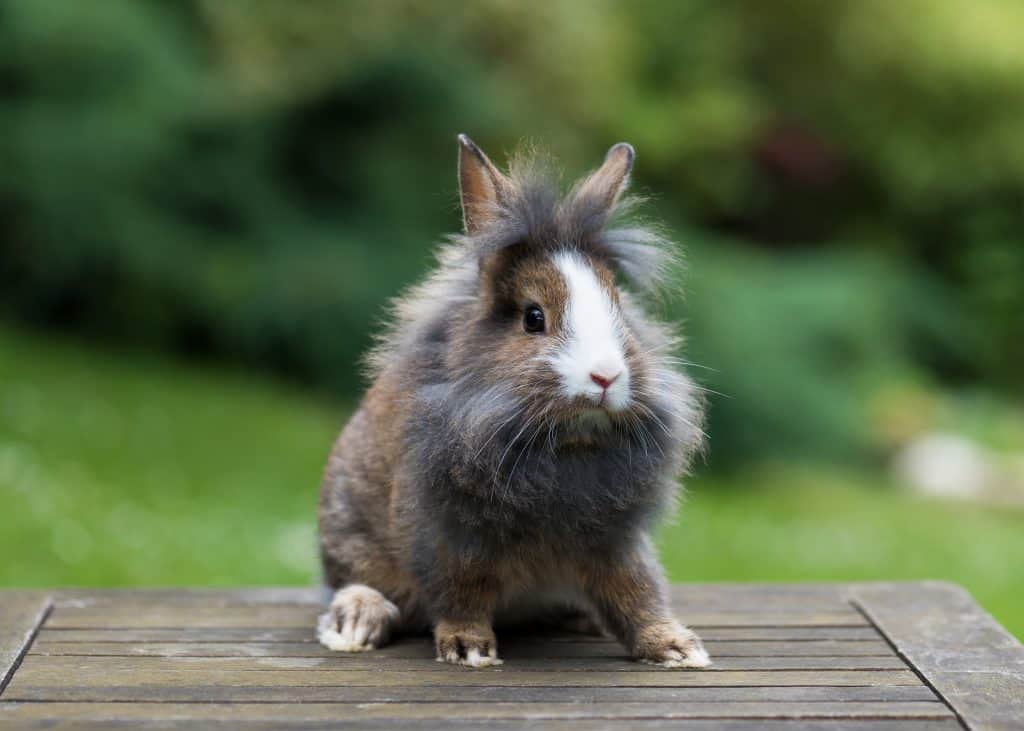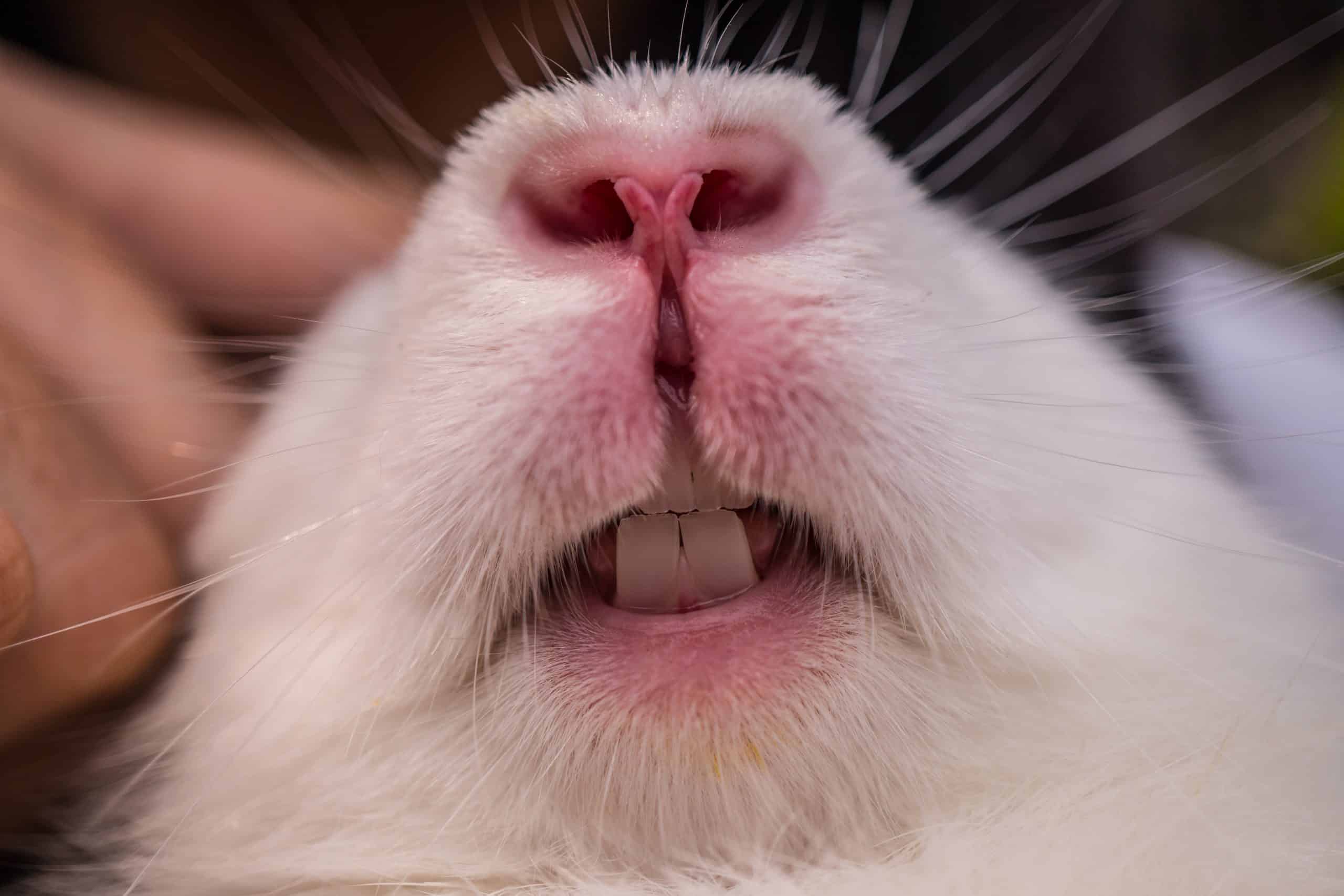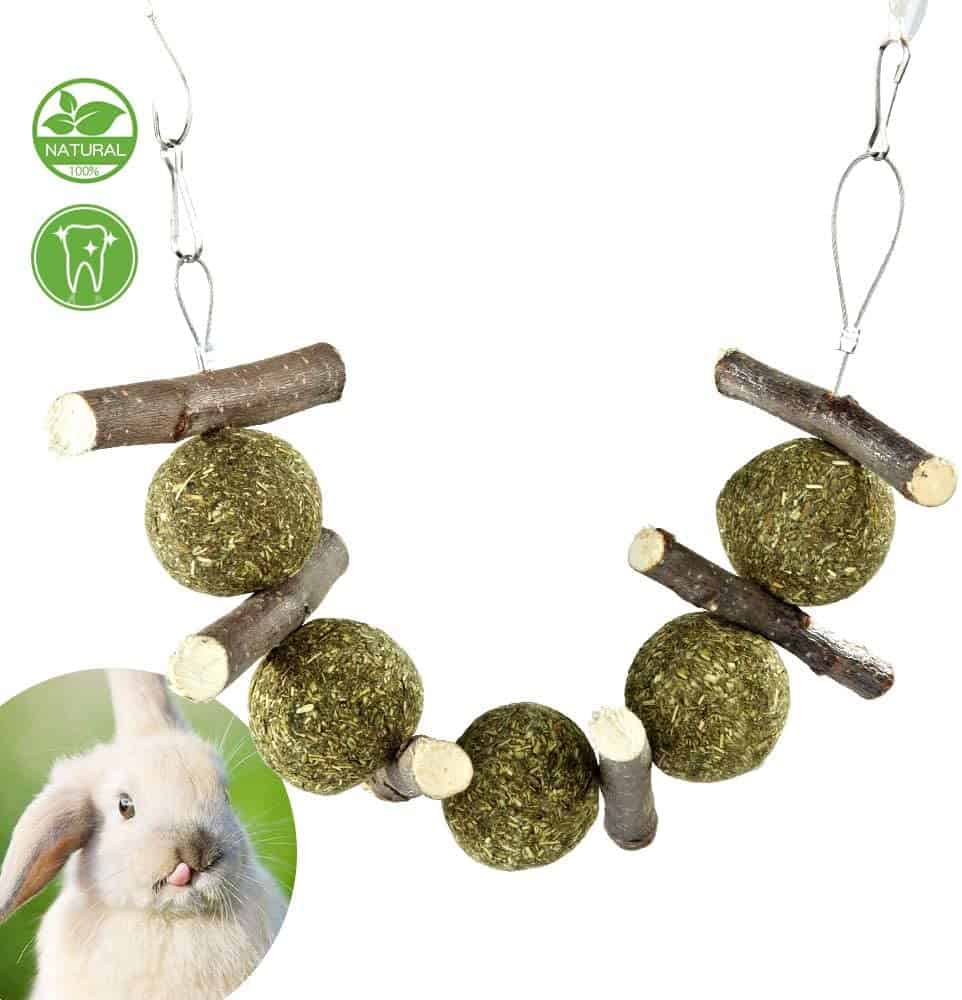The condition of your rabbit’s teeth is an integral part of his good health. As a responsible pet owner, you should learn how to care for rabbit teeth as soon as you decide to adopt or purchase your pet rabbit. Rabbits do a fairly good job of taking care of their teeth. However, sometimes they encounter problems, and that’s when you need to step in. Let us look at what is necessary to keep your rabbit’s teeth healthy.
Do I need to brush my rabbit’s teeth?
No, you do not need to brush your rabbit’s teeth. Your pet rabbit’s teeth are quite special. They are open-rooted teeth. This means that they continue to grow for the duration of your bunny’s life. Your rabbit’s teeth are always changing. They become worn down to make room for the constant new growth. You may notice that your rabbit is always nibbling this is a part of their dental routine.
What can I do to ensure my rabbit’s teeth remain healthy?
While you will not be brushing your rabbit’s teeth, there are a few things that you can do to foster healthy teeth:
- Provide your rabbit with lots of fiber – Your rabbit should always have an ample supply of hay. He will chew and wear down his teeth.
- Don’t go overboard with pellets – How many pellets you feed your bunny, depends on his weight. You should also choose a nibble that is high in calcium.
- Let your rabbit enjoy sunny days – Experts recommend that your rabbit get some sunlight every day. About 15 to 30 minutes is adequate. You don’t want to expose him too much since he may become overheated.
- Be vigilant – Keep a close eye on your rabbit’s teeth. We recommend weekly check-ups. This way if you notice any changes you can address them in a timely fashion.
- Modify your rabbit’s diet so it mimics what he or she would eat in the wild – We recommend wild grass and leafy vegetables. If you have a garden or backyard allow your rabbit to nibble outdoors. Of course, you should check for poisonous plants first.
- Provide safe objects for your rabbit to chew on – You can explore your pet store for rabbit toys. You can also give your rabbit smooth pieces of wood.
What are the symptoms of rabbit dental disease?
If your bunny shows any of these signs something is amiss:
- Excess Salivation/Drooling
- Runny eyes – You may notice a whitish discharge around your rabbit’s eyes.
- Your pet rabbit may eagerly approach his food, only to turn away when it comes to actually taking a morsel into its mouth.
- Changing eating habits – These changes may be sudden or gradual. He may suddenly refuse his pellets and simply stick to his hay trough or vice versa. He may also reject certain foods that he previously loved.
- Drinking water constantly – Your rabbit may drink water to soothe his sore mouth. Drinking lots of water is also a sign of renal failure. So, if you see any of these signs take your bunny to the veterinarian as soon as possible.
What causes dental issues in pet rabbits?
Your pet rabbit may suffer gravely due to congenital teeth complications. Certain breeds are more prone to these problems than others. The rabbits with shortened faces are usually the ones afflicted, namely the Dwarfs and the Lops. Here is a list of some of them:
- Netherland Dwarf
- Britannia Petite
- Teddy Dwarf
- Dwarf Hotot
- Jersey Wooly
- Lionhead
- Miniature Lion Lop
- Miniature Cashmere Lop
- American Fuzzy Lop
- Plush Lop
- Dwarf Lop
- English Lop
- French Lop
- German Lop
- Holland Lop
- Meissner Lop
- Velveteen Lop
- Mini Lop

So, if you have one of the breeds that we have listed above. You should make sure that you keep a close eye on them in case a problem develops, and you need to visit your veterinarian.
Your rabbit’s dental problems may also be caused by a poor diet. If your rabbit is not eating enough grass and hay, her teeth may suffer. A rabbit’s diet should be 80 percent hay and grass. The other 20 percent should be low sugar fruit and vegetables. Pellets are optional if you think that your rabbit is not getting enough vitamins from her food.
What are the rabbit diseases caused by poor dental health?
Dental disease in rabbits is primarily caused by the malalignment of your rabbit’s teeth. Here are the main problems that may plague your bunny’s dental health:
Incisor Malocclusion
This condition is caused by your rabbit’s teeth not lining up as they should. This causes the incisors to become quickly overgrown. The complaint makes eating quite difficult if not impossible. Overgrown teeth may grow upward in the eye sockets. It is painful and can seriously affect your bunny’s wellbeing.
Molar Spurs
If your rabbit already had maloccluded incisors, he may develop molar spurs. Or he may have perfect incisors and still suffer from molar spurs. They can best be described as the sharp edges that develop on molars because of the uneven wearing of the teeth. Tongue spurs are formed on the lower molars and grow inward facing the tongue. They are also known as lingual spurs. Mouth spurs are formed on the upper arcade and jut toward the cheeks. They are also known as buccal spurs.
These sharp points often pierce and scrape the cheek and the tongue. Since rabbits do not often cry out in pain, their eating habits may change signaling to you that something is wrong.
If a molar spur grows undetected and unchecked, it may actually grow into your pet rabbit cheek or tongue. This can cause pain and infection. In extreme cases, molar spurs may grow right across the tongue, preventing food intake.
Ileus
If your rabbit’s dental issues are left unattended, she may develop ileus. This is the term for when food does not move in the intestine as it should. It can result in a life-threatening intestinal blockage. You will need a competent veterinarian if this occurs for diagnosis and treatment.
Does dental disease affect older rabbits?
Yes, it certainly does. As a rabbit ages, dental disease may step in. He will lose bone density, much in the same way a human does. Your rabbit’s teeth may be become looser, causing uneven wear.
As your bunny gets older and his teeth become much less firm, your rabbit may become prone to infection along the gumlines You may notice swelling along the lower jaw or upper jawbones of the mouth. Your elderly bunny may need antibiotic treatment or surgery depending on how serious the infection is.
With age, the molars and incisors may drift further apart. These rogue teeth may affect tear ducts causing runny eyes or epiphora. These overgrown molars may even infringe on the eye orbits and sinuses. Your elderly bun may also develop abscesses.
As your rabbit gets on in years, you should be very watchful for signs of dental disease. If you suspect that your elderly rabbit is being affected by dental irregularities, you should take him to your veterinarian. He will perform an oral exam and maybe have some X rays done, to ascertain the extent of the problem. From there a suitable treatment will be recommended.
What will my veterinarian do to correct dental disease?
Veterinarians have a few tools in their arsenal when it comes to addressing mishappen rabbit teeth. Your veterinarian can choose trimming, clipping, filing, or extraction. Each method has its pros and cons.
- Trimming – Your vet may request that you bring in your rabbit for regular teeth trimming. If it seems that your rabbit is struggling. However, this process can prove stressful for your bunny.
- Filing and grinding– Most veterinarians opt for this procedure since it is nearest to the rabbit’s natural process.
- Clipping – This method is not exceedingly popular since the tooth may fracture all the way to the gumline. This may lead to a bacterial infection. It may prove fatal for your bunny.
- Extraction – The procedure is considered to be the best treatment for maloccluded incisors. This surgical procedure must be done by a veterinarian who is experienced with rabbits. It must be performed with the utmost care to ensure that the teeth are removed permanently. Your rabbit will need pain medication for about 2 days after the surgery. It is expected that your bunny will make a full recovery after the extraction. You will have to make some small adjustments to your feeding regime. Your rabbit will be able to handle hay and pellets as before, but you will have to cut vegetables and fruits into manageable bite-sized pieces. Since your bunny will no longer have its incisors for those tough tasks.
It is imperative that you know what to do to keep your rabbit’s teeth healthy. Since rabbits take care of their teeth themselves, your role is predominantly supportive. However, if your rabbit falls prey to dental disease, your veterinarian will need to step in. If you follow the guidelines provided above, you should be able to help your rabbit maintain good dental health.


